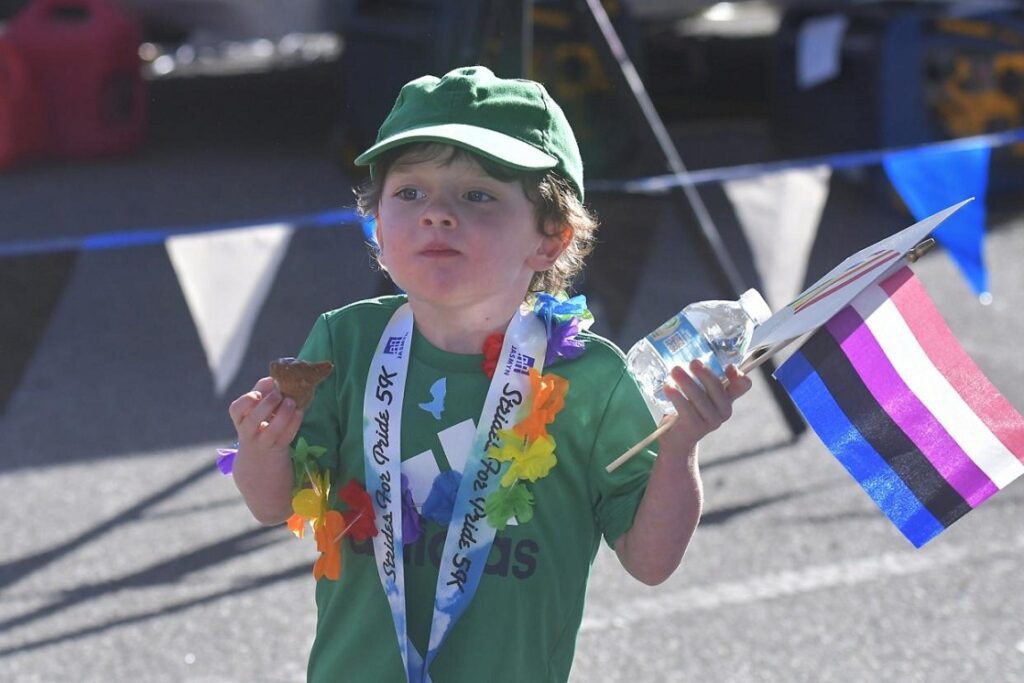LGBTQ+ activist: Thanks to the governor, identity erasure looms in ‘Free State of Florida’
By Amy Glassman
On July 16, 2023

The first time I visited the LGBTQ Center at the University of North Florida as a 20-something undergraduate student, I cried on the shoulder of a complete stranger. That stranger looked like me, loved like me and — as an LGBTQ+ person — understood my anguish. All my walls finally crumbled.
I was only a few short years into my young adult life. I was already struggling to balance working multiple part-time jobs, attending full-time classes, navigating a toxic romantic relationship, dealing with family rejection and facing a serious identity crisis.
Most of the people I had known my entire life wrote me off when I was outed as gay, but when this stranger at the LGBTQ Center told me I was not alone and it would all be OK, I believed them. That single interaction restored my strength to keep going.
Through the center, I was connected with a counselor, made some new LGBTQ+ friends and received some helpful advice on how to navigate a healthy same-sex relationship.
Prior to finding new places to belong on campus, the only resources I had at my disposal came from JASMYN, an organization that provides resources and support to LGBTQ+ youth in Northeast Florida. Those tools and relationships helped me tremendously as I tackled building a life without family support, but I was aging out of JASMYN’s services. Like a baby bird leaving its nest, I needed to start building a new community for myself.
Back then, I was grappling with my identity as a young lesbian woman living in the Bible Belt who was all too often alone in the world. I was also working through the trauma of being rejected by Christianity, the religion that had shaped almost all my values and beliefs to that point. My bruises from that rejection were still yellow with ache; without Christianity, I no longer had a reliable compass to help me navigate life.
I was alone and scared, wanting so badly for people to see me and love me exactly as I was.
College was the first place I saw myself reflected in the people around me and I often found myself seeking safety, support and friendship on campus. As a student, I found those missing pieces of my life at places like the LGBTQ Center and the Interfaith Center at the University of North Florida. That community support is what allowed me to focus on school and pursue my goals.
But Florida’s governor, Ron DeSantis, thinks diversity, equity and inclusion programs are just window dressings.
In fact, Gov. DeSantis feels so strongly about centering the Florida education system around his own white Christian values and culture, he has cut funding for all diversity, equity and inclusion programs in Florida colleges and universities, a law that took effect July 1.

Under the new law, colleges and universities are not allowed to use federal or state funding for DEI initiatives on campus, which undercuts their ability to replace these resources through other funding opportunities.
One of many problems with his plan is that colleges and universities are not just schools, they are homes. Students live on campus, often without transportation; they rely on the school’s on-campus offerings to help them build community and feel comfortable in their new home.
I have never lived on campus and was not even a UNF student. I attended Florida State College at Jacksonville, but I had access to resources and clubs on both campuses through my participation in the UNF Army ROTC program. The programs I found there were literally lifesaving to me.
If I needed these things living off-campus in my hometown, the students who left their entire lives behind to attend college in a new city definitely need them.
Places like the Interfaith Center offer people from all faiths a community while they are away from their own. It offers them an opportunity to talk about their culture with others and find consensus on how we are all the same, no matter our differences. Diverse programs like these are powerful for bringing people together, which we could all use a little more of these days.
In my experience with the Interfaith Center, I have led discussions with students about the intersection of religion and sexual orientation, shared my journey to finding myself in Judaism and learned about other’s experiences too, which also helped me heal. This space gave me the opportunity to help those who were once like me — lost and trying to figure out if I could fit into my religion while still loving who I loved.
Religious spaces have not been historically welcoming places for me, but that has never been the case at the Interfaith Center. Instead of seeing only my own identity reflected in the people there, I saw a beautiful mosaic of people from all walks of life. It exposed me to different cultures and religions. Even better, I have always been welcomed and fully accepted, no caveat.
Connectivity to people like you and exposure to people different from you are both necessary to growing into a well-rounded member of society. When these two components of life are balanced, you become more empathetic toward others and you feel more empowered with a community around you. According to researchers, social support builds resilience and lowers stress, allowing individuals to tackle adversity while maintaining good physical and mental health.
So, stripping DEI programs from schools is stripping the students of their access to safe spaces that help them maintain their identity while being away from their support systems. This policy is systematically invalidating and erasing identities.
That is a dangerous game to play with the lives of young people who are still figuring out who they will become while maintaining who they always have been. If these programs had not existed when I was a young student, I would have lost my footing on the highest peak.
Our children deserve better. America should be leading the way in its respect for humanity.
For those who support this change, I challenge you to take inventory of all the people around you, then decide which one of them deserves to have their identity erased in a country where all people are created equal. For those who have remained silent, I challenge you to consider what silence will cost you when your own rights are on the chopping block one day.
For those who are disgusted by this attempt at erasure, I challenge you to take your civil engagement up a notch. Write your elected representatives. Protest in your community. Share your stories. Vote in every election for candidates who will use their power to protect all Americans — even the ones they disagree with or do not like.
We all have work to do.
This piece was republished from AOL News.